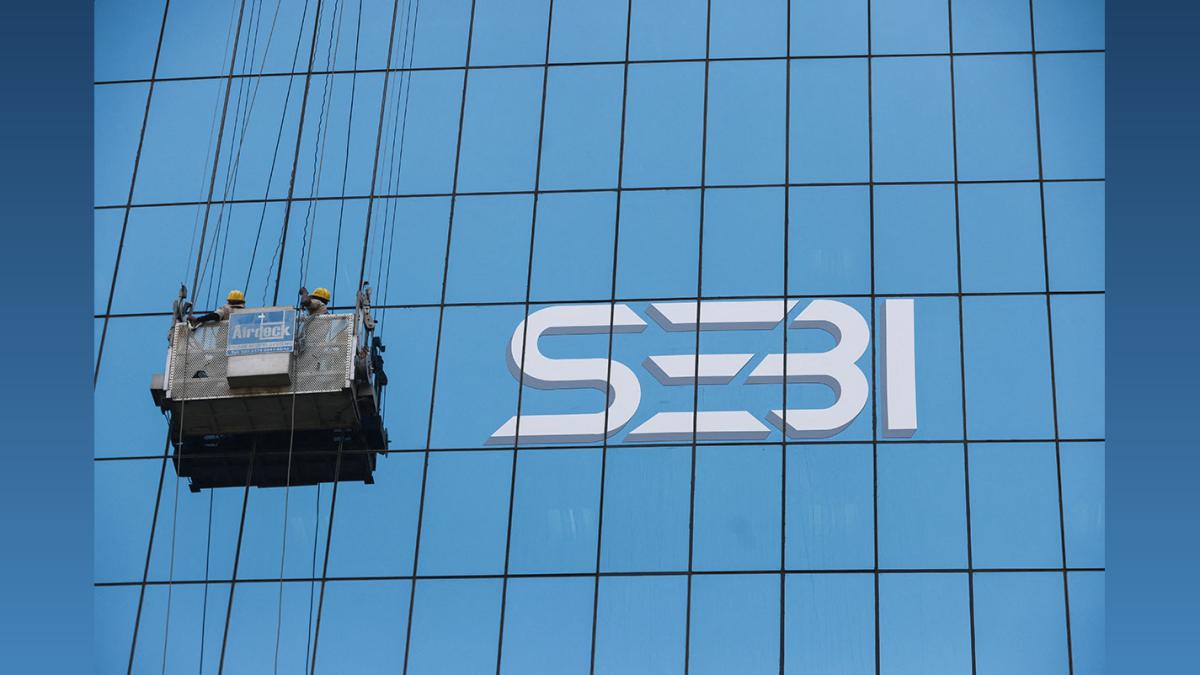Sebi Tweaks Price Bands for Derivatives: Volatility Control
Sebi modifies guidelines for dynamic price bands in derivatives to manage volatility and minimize information asymmetry. Changes include increased cooling-off periods and adjusted flexing percentages.

Photograph: Francis Mascarenhas/Reuters
New Delhi, May 24 (PTI) Capital markets regulator Sebi on Friday modified guidelines for dynamic price bands for scrips in the derivatives segment in a bid to strengthen volatility management and minimise information asymmetry.
For scrips excluded from the requirement of price bands, a mechanism of dynamic price bands (or operating range) has been implemented by stock exchanges.
Currently, cash market and futures contracts start with a price band at 10 per cent of the previous day's closing price, which can be adjusted by 5 per cent during the day if there are at least 25 trades involving 5 unique client codes (UCCs) on each side at or above 9.90 per cent. A 15-minute cooling-off period follows each adjustment, during which trading continues within the current band.
Based on feedback, Sebi has modified these rules, enhancing the conditions to 50 trades, 10 unique UCCs, and 3 trading members on each side for adjustments, according to its circular.
When conditions for adjusting the price bands are met in either the cash market or current month futures contracts on any exchange, the price band will be adjusted for the scrip and all its futures contracts across all exchanges after the cooling-off period.
To manage volatility, it has been decided that the cooling off period of 15 minutes would be increased and the flexing per cent of 5 per cent would be decreased, in a calibrated manner.
For the first two adjustments, the price band will be flexed by 5 per cent after a 15-minute cooling-off period (5 minutes if the adjustment occurs in the last half hour of trading). For the next two adjustment, the price band will be flexed by 3 per cent after a 30-minute cooling-off period and for further adjustments, the price band will be flexed by 2 per cent after a 60-minute cooling-off period.
On sliding price bands, Sebi said when a price band is adjusted in one direction, the band on the opposite side will also be adjusted, and orders outside the new price band will be cancelled, reducing volatility and allowing participants to place orders near the current market price.
On options trading, Sebi said that during the cooling-off period, a temporary price floor or ceiling will be applied to options contracts, linked to the last traded or theoretical price, to allow hedging or closing positions. Once the underlying scrip's price band is flexed, the options' price band will be adjusted accordingly. Stock exchanges will notify trading members and clients about cancelled orders and ensure compliance with these new rules.
The circular would be implemented by stock exchanges in a phased manner beginning from June 3.
For scrips excluded from the requirement of price bands, a mechanism of dynamic price bands (or operating range) has been implemented by stock exchanges.
Currently, cash market and futures contracts start with a price band at 10 per cent of the previous day's closing price, which can be adjusted by 5 per cent during the day if there are at least 25 trades involving 5 unique client codes (UCCs) on each side at or above 9.90 per cent. A 15-minute cooling-off period follows each adjustment, during which trading continues within the current band.
Based on feedback, Sebi has modified these rules, enhancing the conditions to 50 trades, 10 unique UCCs, and 3 trading members on each side for adjustments, according to its circular.
When conditions for adjusting the price bands are met in either the cash market or current month futures contracts on any exchange, the price band will be adjusted for the scrip and all its futures contracts across all exchanges after the cooling-off period.
To manage volatility, it has been decided that the cooling off period of 15 minutes would be increased and the flexing per cent of 5 per cent would be decreased, in a calibrated manner.
For the first two adjustments, the price band will be flexed by 5 per cent after a 15-minute cooling-off period (5 minutes if the adjustment occurs in the last half hour of trading). For the next two adjustment, the price band will be flexed by 3 per cent after a 30-minute cooling-off period and for further adjustments, the price band will be flexed by 2 per cent after a 60-minute cooling-off period.
On sliding price bands, Sebi said when a price band is adjusted in one direction, the band on the opposite side will also be adjusted, and orders outside the new price band will be cancelled, reducing volatility and allowing participants to place orders near the current market price.
On options trading, Sebi said that during the cooling-off period, a temporary price floor or ceiling will be applied to options contracts, linked to the last traded or theoretical price, to allow hedging or closing positions. Once the underlying scrip's price band is flexed, the options' price band will be adjusted accordingly. Stock exchanges will notify trading members and clients about cancelled orders and ensure compliance with these new rules.
The circular would be implemented by stock exchanges in a phased manner beginning from June 3.
You May Like To Read
TODAY'S MOST TRADED COMPANIES
- Company Name
- Price
- Volume
- Vodafone-Idea-L
- 11.65 (+ 3.56)
- 106772451
- Alstone-Textiles
- 0.28 ( -3.45)
- 44187760
- Mangalam-Industrial
- 0.88 ( -2.22)
- 39177573
- Sunshine-Capital
- 0.27 (+ 3.85)
- 35956340
- GMR-Airports
- 104.40 (+ 6.37)
- 30453005





